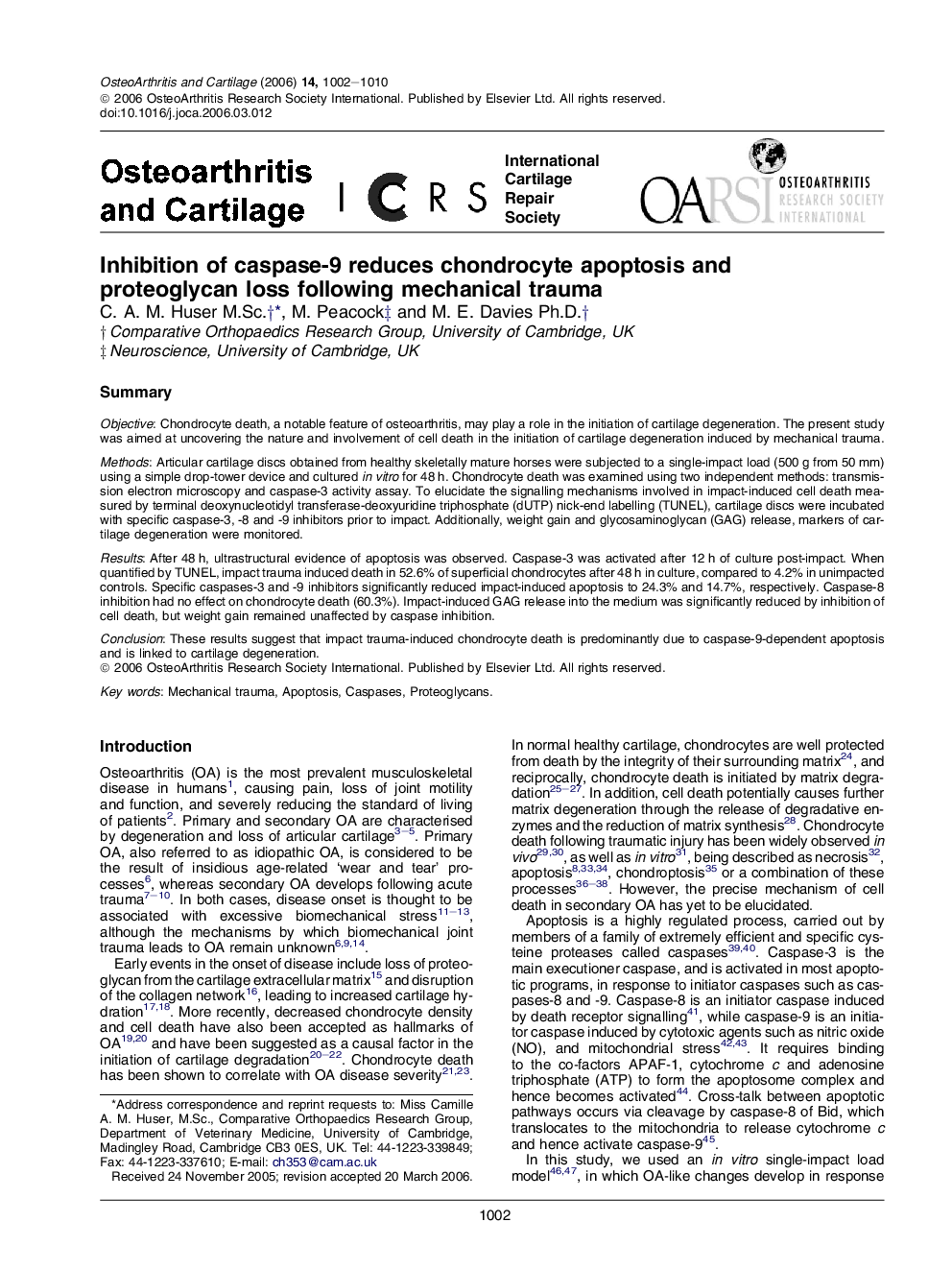| Article ID | Journal | Published Year | Pages | File Type |
|---|---|---|---|---|
| 3381205 | Osteoarthritis and Cartilage | 2006 | 9 Pages |
SummaryObjectiveChondrocyte death, a notable feature of osteoarthritis, may play a role in the initiation of cartilage degeneration. The present study was aimed at uncovering the nature and involvement of cell death in the initiation of cartilage degeneration induced by mechanical trauma.MethodsArticular cartilage discs obtained from healthy skeletally mature horses were subjected to a single-impact load (500 g from 50 mm) using a simple drop-tower device and cultured in vitro for 48 h. Chondrocyte death was examined using two independent methods: transmission electron microscopy and caspase-3 activity assay. To elucidate the signalling mechanisms involved in impact-induced cell death measured by terminal deoxynucleotidyl transferase-deoxyuridine triphosphate (dUTP) nick-end labelling (TUNEL), cartilage discs were incubated with specific caspase-3, -8 and -9 inhibitors prior to impact. Additionally, weight gain and glycosaminoglycan (GAG) release, markers of cartilage degeneration were monitored.ResultsAfter 48 h, ultrastructural evidence of apoptosis was observed. Caspase-3 was activated after 12 h of culture post-impact. When quantified by TUNEL, impact trauma induced death in 52.6% of superficial chondrocytes after 48 h in culture, compared to 4.2% in unimpacted controls. Specific caspases-3 and -9 inhibitors significantly reduced impact-induced apoptosis to 24.3% and 14.7%, respectively. Caspase-8 inhibition had no effect on chondrocyte death (60.3%). Impact-induced GAG release into the medium was significantly reduced by inhibition of cell death, but weight gain remained unaffected by caspase inhibition.ConclusionThese results suggest that impact trauma-induced chondrocyte death is predominantly due to caspase-9-dependent apoptosis and is linked to cartilage degeneration.
